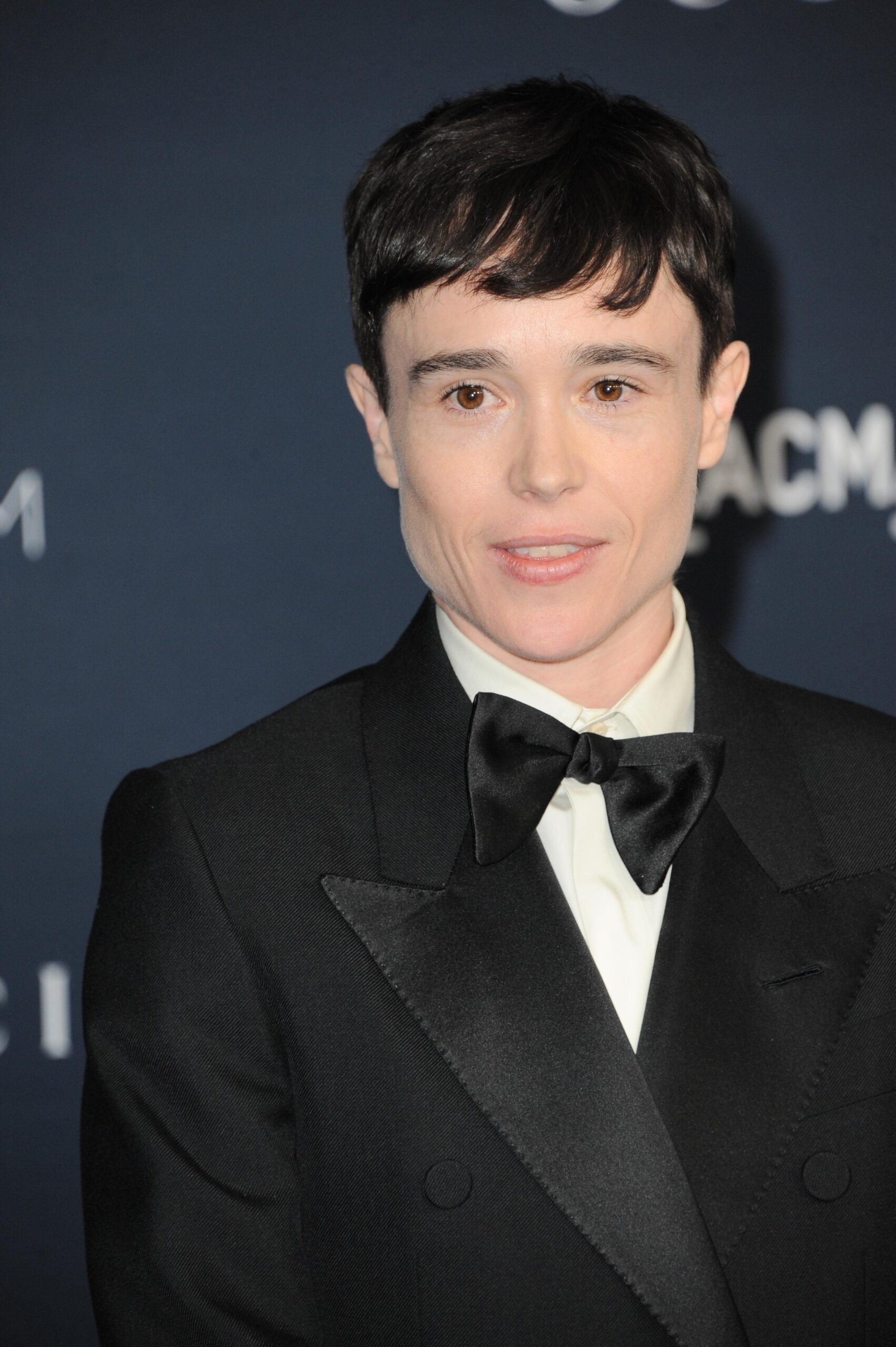CULTURE
Elliot Page Is the First Openly Trans Man on TIME Magazine’s Cover
16 Mar, 21

Elliot Page at the 2022 LACMA ART+FILM GALA Presented By Gucci held at the Los Angeles County Museum of Art in Los Angeles, USA on November 5, 2022.
By Tinseltown
In a history-breaking move, Elliot Page has appeared on the cover of TIME Magazine.
The actor, known for Netflix’s Umbrella Academy and the hit film Juno, used his interview to share some of his story and to speak out for trans rights.
The cover story comes several months after Page first came out as transgender. In a statement shared on his social media platforms, he wrote, “I want to share with you that I am trans, my pronouns are he/they and my name is Elliot. I feel lucky to be writing this. To be here. To have arrived at this place in my life.”
Page was met with widespread celebration from fans and the Hollywood community, and the same goes for his TIME feature. In his interview with Katy Steinmetz, Page spoke more about everything from his childhood to the history of the movement for trans rights.
According to the interview, Page has identified as a boy since he was a child growing up in Nova Scotia. “I felt like a boy,” he said. “I wanted to be a boy. I would ask my mom if I could be someday.”
But when he started acting, he was cast in roles that required him to grow his hair out and perform femininity. Even when he came out as gay, he still felt uncomfortable in his own skin. “I just never recognized myself,” he said. “For a long time I could not even look at a photo of myself.”
He never knew how to address this, especially as he was cast in higher-profile films like Inception. He didn’t know, he said, “how to explain to people that even though [I was] an actor, just putting on a T-shirt cut for a woman would make me so unwell.”
Now, though, Page said that the pandemic allowed him space and time for self-reflection, which gave him the courage to finally come out. He divorced his wife Emma Portner earlier this year, and said, “I had a lot of time on my own to really focus on things that I think, in so many ways, unconsciously, I was avoiding.”
He also said that he was inspired by the rampant transphobia he has seen over the past year, including the anti-trans rhetoric of Marjorie Taylor Greene, the United States representative who recently hung a transphobic sign on her door — near the office of Marie Newman, a fellow congresswoman who has a trans daughter.
Transphobia has always existed, but it’s become intertwined with political and cultural wars, many of which accuse trans people of somehow being confused. J.K. Rowling has become a vicious proponent of this belief, to the despair of her many fans. (But people are fighting back, and the new Harry Potter video game will feature trans characters).
“We know who we are,” Page told TIME. “People cling to these firm ideas [about gender] because it makes people feel safe. But if we could just celebrate all the wonderful complexities of people, the world would be such a better place.”
Page also told the magazine that he had undergone top surgery before coming out online. The surgery was “not only life-changing but lifesaving,” he said, emphasizing that many trans people suffer deeply because they do not have access to proper medical care, one of the reasons that over 40% of trans people have attempted suicide.
“Like many trans people, Page emphasizes being trans isn’t all about surgery,” writes Steinmetz in the article. “For some people, it’s unnecessary. For others, it’s unaffordable. For the wider world, the media’s focus on it has sensationalized transgender bodies, inviting invasive and inappropriate questions. But Page describes surgery as something that, for him, has made it possible to finally recognize himself when he looks in the mirror, providing catharsis he’s been waiting for since the ‘total hell’ of puberty.”
Now, Page is looking forward to acting again. Apparently he has received many role offers, some for trans characters and others for “dude roles.”
In the interview, Page also took the time to recognize the wider scope of the trans movement, in terms of the trailblazers who have come before him and also the people who are far more vulnerable than he. In the interview, he took a moment to honor the more than 44 trans lives lost in 2020, many of whom were Black trans folks.
In general, studies have shown that trans people of color tend to experience higher levels of unemployment and harassment, and they have much less access to surgery and medical care than wealthy white trans folks like Page.
“My privilege has allowed me to have resources to get through and to be where I am today,” Page says, “and of course I want to use that privilege and platform to help in the ways I can.”













